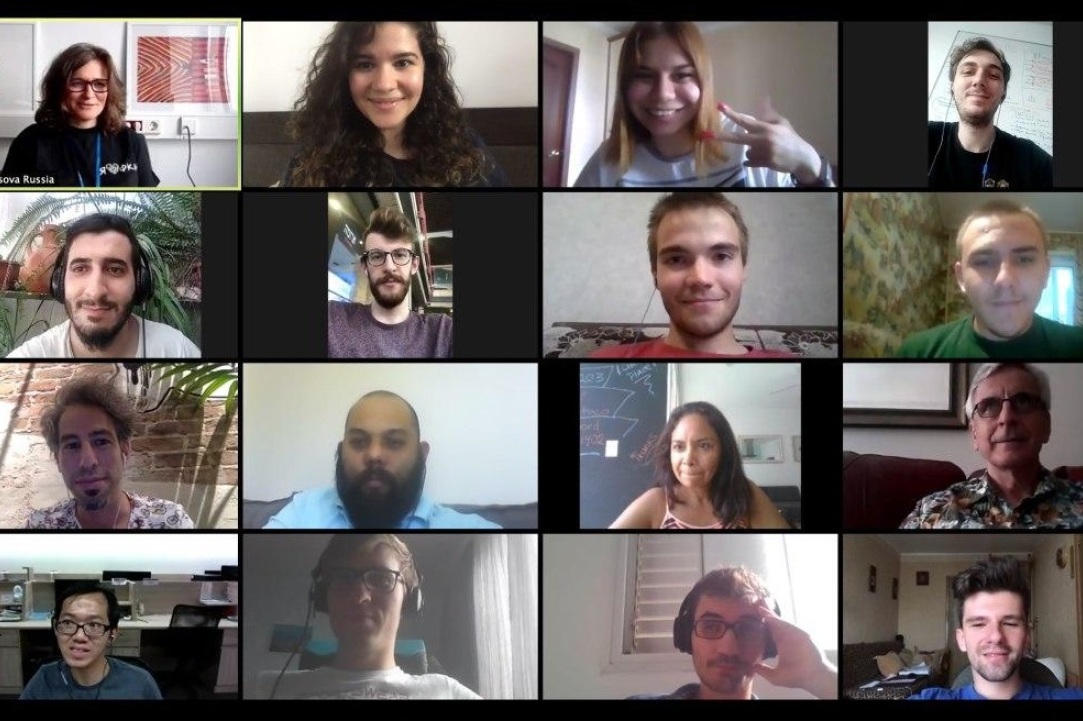
Contemporary biology is a data-rich science. Modern experimental techniques in life sciences produce large, constantly accumulating amounts of data. Therefore, the merge between biology and data analysis became vitally necessary. Applied to biology, data analysis requires knowledge of both basic computer science and task-specific algorithms, yielding a high demand for professionals in bioinformatics.
The school initially was planned to take place at the HSE University campus. However, due to the pandemic, the school was switched to online format. Thanks to this, one hundred and twenty-six students from twenty-two countries and fifty universities were able to take part in the school. Among the participants were students of every level from bachelor to PhD.
The main sessions have covered:
- Convolutional neural networks for protein-DNA/RNA binding
- DNA secondary structure prediction
- Deep learning for DNA secondary structure prediction
- Deep learning for splice site prediction
- Geometric deep learning: theory, method, and applications in biological sciences
- Learning about the genome in 3D
- Deep generative models for knowledge transfer
- Advances in machine learning for molecules
- Disruptive AI technologies for molecular biology and medicine
- Bayesian checkpoint segmentation and genome annotation
- Using machine learning to understand gene regulation and the consequences of disease associated genetic variants
- Interpretable an explainable deep learning
Maria Poptsova
Head of the School, Laboratory Head
"Pandemic imposed many limitations on of lifes, but on the other hand we were able to convene speakers and participants from all over the world. Out of ten sessions, sever were conducted by foreign experts from Israel, Belgium, Republic of Korea, Hong Kong, United Kingdom, and Germany. Russia was represented by the researchers of HSE University, Skoltech, and Moscow Institute of Physics and Technology. Participants also came from Brazil, Mexico, USA, and Marocco. This was our first experience organising an international online event – and a very successful one. Online education and research communication have become a necessity, and we, using their advantages, are now able to meet, to listen to lectures and take part in workshops of the researchers who may be unable to come in person."
Yaron Orenstein
Ben-Gurion University of the Negev
"I had the privilege and honor to speak at the Machine Learning in Bioinformatics Summer School at HSE. Together with my student Maor we presented the topic of ‘convolutional neural network for protein-DNA binding’. We met a very enthusiastic audience eager to hear and participate in the seminar. All of our exercises and demonstrations got a very good response. Unfortunately, the current pandemic prevents us meeting face-to-face, and thus some inherent limitations exist in the virtual forum. I was missing the offline discussions with other participants, both students and faculty, as well as staying to listen to all other speakers and talks. Hopefully, we can soon meet again and overcome these shortcomings of the virtual conference. On the positive side, all of my students and many more bioinformaticians could participate and even listen to the talks at a later time as they were all recorded and made available soon after. I thank the organizers for their efforts, and hope to see them next year somewhere around the world."
Marina Parr
School’s participant, PhD student at TU Munich
"Summer school “Machine Learning in Bioinformatics” became a highlight of summer 2020. Lectures and seminars of the school covered various examples of applying ML to biological data and were delivered by the leading experts in the field. During the lectures basic concepts of ML were accompanied with more advanced techniques of data analysis, such as noise reduction, dealing with imbalanced datasets, overtraining. Warm and open atmosphere between participants and organisers of the school worth a special word. A lot of effort of the organisers was invested into making the school as interactive as possible in the frames of the online meeting. The school has not only brought me new knowledge, but also charged with motivation to learn more about ML and apply it to projects in genomics."
Aymane Kricha
School’s participant, PhD student at Wuhan University
"I was delighted to attend the HSE bioinformatics summer school. During five days I had the privilege to explore significant novelties and Breakthroughs in the machine Learning field and its application in Biology.
Coming from a bioengineering background I was especially astonished by Pr. Ka-Chun Wong's (City University of Hong Kong) talk on "Disruptive AI technologies for molecular biology and medicine: DNA motifs, CRISPR-Cas9 Off-Targets, and cancer screening from blood", during his presentation I discovered a potential solution for a genuine problem in my research concerning Crispr Cas off-target."

